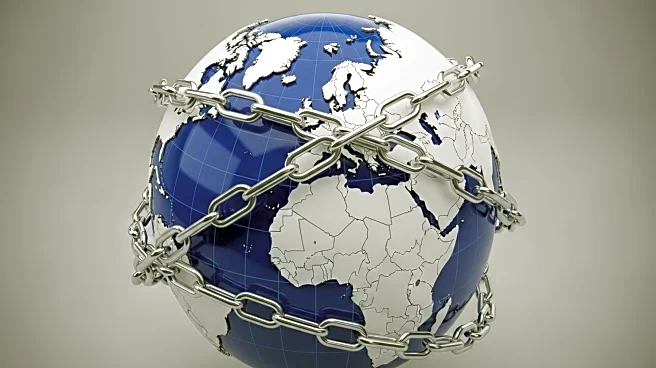What's Happening?
Britain, France, and Germany have notified the United Nations that Iran is in violation of the 2015 nuclear agreement, which was designed to limit Iran's nuclear activities. This notification initiates a 30-day consultation period during which diplomats from Iran and Europe are expected to engage in negotiations to prevent the reimposition of sanctions. The European foreign ministers have expressed their commitment to resolving the issue diplomatically. Iran's Foreign Minister Abbas Araghchi has labeled the move as illegal and has indicated that Iran will respond to protect its national rights and interests.
Why It's Important?
The potential reinstatement of sanctions on Iran could have significant implications for international relations and global security. The 2015 nuclear deal, known as the Joint Comprehensive Plan of Action (JCPOA), was a pivotal agreement aimed at preventing Iran from developing nuclear weapons. The European nations' decision to potentially reinstate sanctions underscores the ongoing tensions surrounding Iran's nuclear ambitions. This development could affect global oil markets, as Iran is a major oil producer, and could also influence diplomatic relations between Iran and Western countries. The situation highlights the challenges of maintaining international agreements and the complexities of nuclear diplomacy.
What's Next?
During the 30-day consultation period, diplomatic efforts are expected to intensify as both European and Iranian officials seek to find a resolution. The outcome of these negotiations could determine whether sanctions are reimposed or if a new agreement can be reached. The international community will be closely monitoring the situation, as the reimposition of sanctions could escalate tensions in the Middle East and impact global economic and security dynamics.








